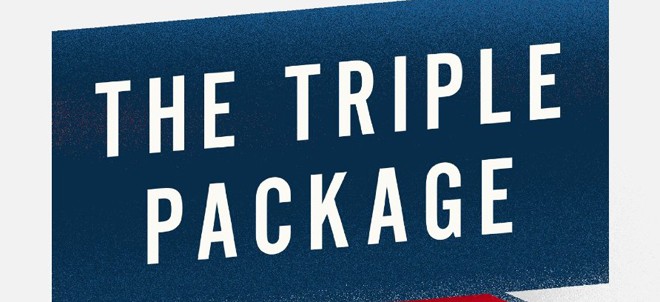

Dear all,
If you haven’t heard of Amy Chua, it’s likely you missed out on all the debate that her 2011 book on parenting started and all the outrage it provoked. But if you have heard of her, you will remember her as the author of Battle Hymn of the Tiger Mother -- as the Chinese American mother and Yale Law professor whose book advocated strict parenting, praised high parental expectation and who articulated the view that parents need to drive their children towards goals and high aspiration.
The reaction to Chua’s book included not just death threats but also accusations that her strict parenting bordered on child abuse; much was made of the fact that she forced her daughters to spend hours practising their music, never allowed them to have sleep-overs at their friends’ houses and told them they were expected to remain at the top of their class and anything less than an A grade was unacceptable.
Now, three years later, Chua is in the news again -- with another book. This one is co-authored with her husband Jed Rubenfeld (also a Yale law professor and author of crime thrillers like The Interpretation of Murder) and seems likely to create more controversy. The book is called The Triple Package and it looks at why some cultural groups do so much better than others in the US. The successful groups they examine are: Jews, Mormons, Indians, Chinese, Iranians, Lebanese, Cubans and Nigerians. The auhors’ thesis is that all of these groups share three specific characteristics: a sense of cultural superiority, a degree of insecurity (as immigrants or perhaps minority communities) and the ability to practice "impulse control" i.e. be disciplined enough to control impulse and reckless extravagance.
This "triple package" is, argue the authors, what drives these communities to success.
It’s been interesting to read what the authors have to say about this work, and that they anticipate that some of the criticism will accuse them of ‘racism’ and intolerance. They themselves are critical of the "self-esteem" movement, an attitude that considers every child a winner, every student who made an effort a star, and which basically opposes competitions and ranking (rather an anomaly for countries who subscribe to cut throat versions of capitalism).
So that automatically demonises them in the eyes of those people who believe there is more to life than just A grades and promotions. And yes, their view is a little intense but there is clarity in it that allows for debate and counter argument and it raises the question of the importance of aspiration and focus in life.
Chua, as the child of Chinese immigrants, has interesting personal stories as well. She recounts growing up seeing how hard both her parents worked, and how that became the norm rather than something unusual in life. My favourite anecdote was one she shared in an interview with Kira Cochrane in The Guardian. She recalls how years ago when she was trying to get a professor job, she got rejected by around 500 colleges. After the 500 rejections she called her father (a well-known scientist himself) and said she didn’t think she could be a professor. His answer was: "Wait, how many rejections did you get?… you get 500 rejections, and you want to give up? You think that’s a LOT?"
"Five hundred rejections and you want to give up?" Chua’s dad’s response is a classic line. You’ve got to love it: it’s a reminder that if you have a goal, you shouldn’t be easily discouraged. Persistence and hard work are not really something we should scoff at, whatever we may think of the Tiger Mom’s hardline views.
Best wishes